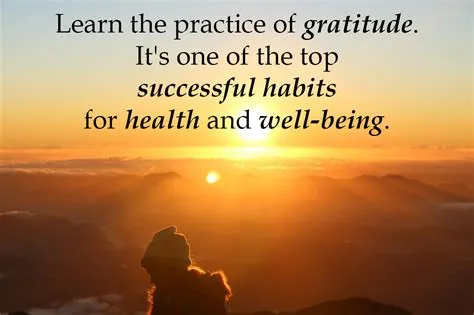Gratitude is more than just a polite “thank you.” It’s a powerful practice with profound effects on mental, emotional, and physical health. Research has shown that regularly practicing gratitude can lead to increased happiness, improved relationships, and better overall well-being.
The Neuroscience of Gratitude
Expressing gratitude activates brain regions associated with reward, including the medial prefrontal cortex. This activation enhances feelings of contentment and emotional well-being. Regular practice can lead to long-term positive changes in the brain, supporting mental health and resilience.
Mental and Emotional Benefits
- Increased Happiness: Gratitude helps people feel more positive emotions, relish good experiences, improve their health, deal with adversity, and build strong relationships.
- Reduced Depression and Anxiety: Practicing gratitude can reduce feelings of stress and anxiety. Studies have found that a single act of thoughtful gratitude produces an immediate 10% increase in happiness and a 35% reduction in depressive symptoms.
- Improved Sleep: People with an attitude of gratitude tend to pursue goals that keep them feeling good. They engage in activities that support healthy sleep, such as eating well and exercising regularly. Practicing gratitude also makes you less likely to be stressed, anxious, or depressed—three factors that affect sleep quality and duration.
Physical Health Benefits
- Enhanced Heart Health: Gratitude has been linked to improved cardiovascular health. Studies show that a grateful mindset positively affects biomarkers associated with the risk for heart disease.
- Stronger Immune System: Gratitude can enhance immunity, leading to fewer illnesses and better overall health.
How to Practice Gratitude
Incorporating gratitude into your daily routine can be simple and impactful:
- Gratitude Journaling: Write down three things you’re grateful for each day. This practice can shift your focus from what’s lacking to what’s abundant in your life.
- Express Appreciation: Take a moment to thank someone, whether it’s a colleague, friend, or family member. Expressing gratitude strengthens relationships and fosters a positive environment.
- Mindful Reflection: Spend a few minutes each day reflecting on the positive aspects of your life. This can be done through meditation, prayer, or simply sitting quietly and appreciating the present moment.
Conclusion
Gratitude is a simple yet powerful practice that can enhance your mental, emotional, and physical well-being. By incorporating gratitude into your daily life, you can experience greater happiness, improved health, and stronger relationships. Start today by acknowledging the good in your life and expressing appreciation for it.



